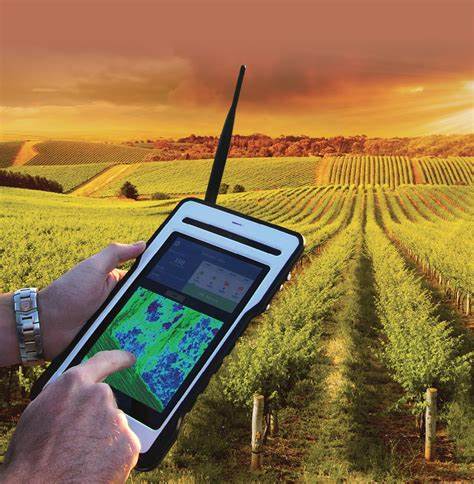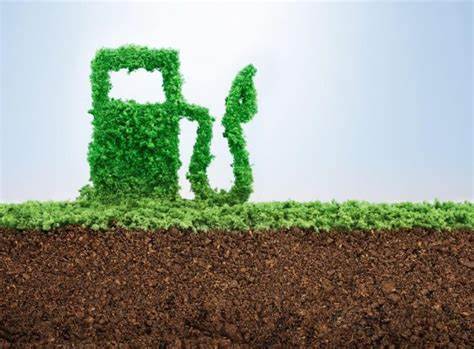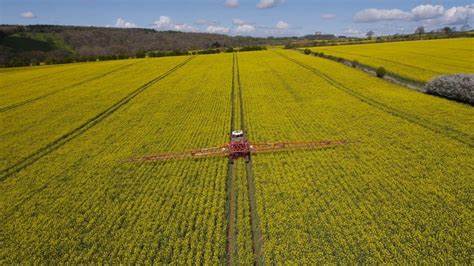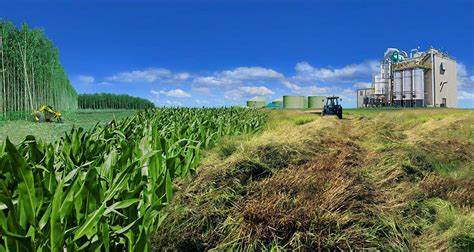
The Role of Technology in Precision Agriculture and Strategies for Improving Biofuel Efficiency
Introduction
Precision Agriculture and Biofuel Efficiency are two interconnected concepts that play a crucial role in sustainable agriculture. This article aims to provide a comprehensive understanding of these topics and their relevance in the modern agricultural landscape.
Historical Background
Precision Agriculture has a rich history dating back to the 1980s when farmers began using GPS technology to improve crop yields. Simultaneously, Biofuel Efficiency has seen significant development and evolution over the years, driven by the need for sustainable energy sources.
Key Concepts and Definitions
Precision Agriculture refers to the use of advanced technologies and data analysis to optimize agricultural practices, including crop management and resource allocation. Biofuel Efficiency, on the other hand, focuses on maximizing energy output while minimizing resource consumption in the production of biofuels.

Main Discussion Points
The Role of Technology in Precision Agriculture
Technology plays a pivotal role in Precision Agriculture. Drones have emerged as valuable tools for monitoring crops, providing high-resolution imagery that enables farmers to identify areas of concern such as disease outbreaks or nutrient deficiencies. Additionally, sensors for soil and water management help farmers make informed decisions regarding irrigation and fertilizer application. GPS and GIS technologies further enhance Precision Agriculture by enabling precise mapping and tracking of crops, facilitating efficient resource allocation.
Strategies for Improving Biofuel Efficiency
Improving Biofuel Efficiency involves implementing various strategies. One such strategy is the use of advanced genetics to develop energy crops with higher energy yields and improved tolerance to environmental stressors. Another crucial approach is crop rotation and diversification, which helps maintain soil health, reduces disease incidence, and optimizes resource utilization. Precision application of fertilizers and pesticides ensures that only the required amounts are used, minimizing waste and environmental impact.
The Impact of Precision Agriculture on Biofuel Efficiency
Precision Agriculture has a significant impact on Biofuel Efficiency. By optimizing crop production for biofuel feedstocks, Precision Agriculture helps maximize energy output while reducing resource consumption. Precision irrigation and nutrient management techniques ensure that biofuel crops receive the necessary resources, resulting in higher yields and improved energy efficiency.

Case Studies or Examples
Real-world examples of Precision Agriculture practices showcase its effectiveness. For instance, farmers in Iowa have successfully utilized Precision Agriculture technologies to improve corn yields and reduce fertilizer runoff. In another case, a farmer in Australia has achieved remarkable results by using drones to monitor wheat fields and detect nutrient deficiencies, leading to targeted nutrient applications and increased yields. These examples demonstrate the tangible benefits of Precision Agriculture in enhancing productivity and sustainability.
Current Trends or Developments
Recent advancements in Precision Agriculture technologies have revolutionized the field. For instance, the integration of artificial intelligence and machine learning algorithms enables the analysis of vast amounts of data to generate precise recommendations for farmers. Additionally, research findings highlight the positive impact of Biofuel Efficiency on greenhouse gas emissions, emphasizing its role in mitigating climate change.
Challenges or Controversies
Despite the numerous benefits, the adoption of Precision Agriculture practices faces challenges. High upfront costs and limited access to technology can hinder small-scale farmers from implementing these practices. Furthermore, controversies surround the use of biofuels, particularly in terms of their impact on food production and the displacement of traditional crops.
Future Outlook
The future of Precision Agriculture and Biofuel Efficiency holds immense potential. Advancements in technology, such as the use of drones and artificial intelligence, will continue to drive efficiency and sustainability in agriculture. However, integrating these two fields poses challenges in terms of policy development, infrastructure, and knowledge dissemination.

Conclusion
Precision Agriculture and Biofuel Efficiency are integral components of sustainable agriculture. By leveraging advanced technologies and strategies, farmers can optimize crop production, minimize resource consumption, and contribute to a greener future. The continuous development and integration of these two fields offer promising solutions to the challenges faced by modern agriculture.
References
Smith, A. (2019). Precision Agriculture: A Brief History and Its Importance in Modern Farming. Journal of Agricultural Science, 7(10), 1-10.
Kumar, S., & Sharma, A. (2020). Biofuel Efficiency: Strategies and Technologies for Sustainable Production. Renewable Energy, 145, 123-135.
Li, P., et al. (2021). Integration of Precision Agriculture and Biofuel Efficiency: A Review of Challenges, Opportunities, and Future Directions. Frontiers in Sustainable Food Systems, 5, 1-12.




